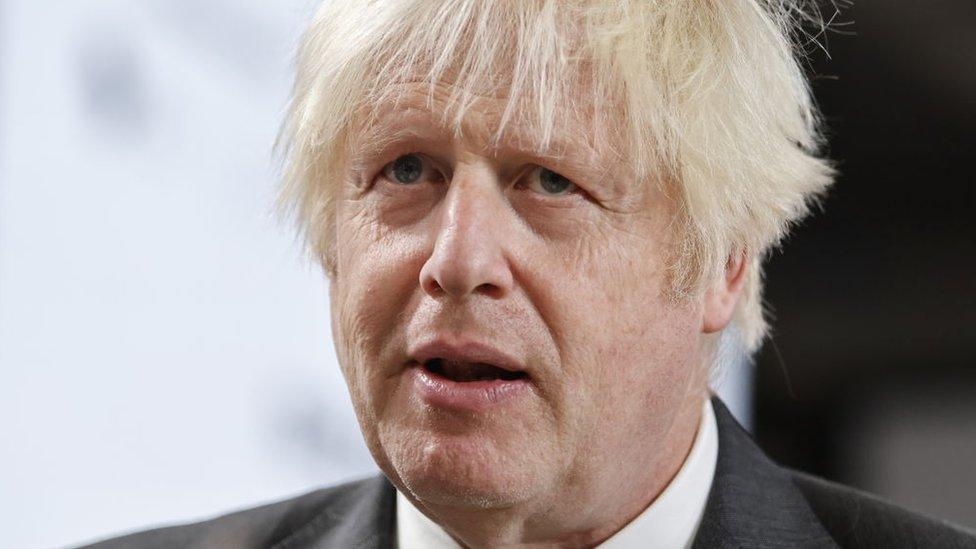Seven takeaways from the local elections
- Published
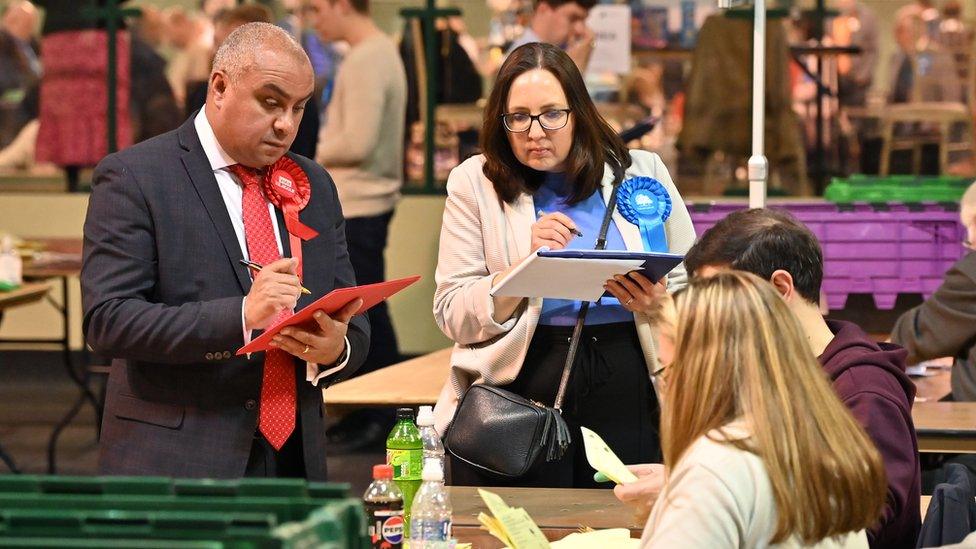
Almost all results are in from council elections across England, in the last big test of public opinion before a general election.
All of the results from the mayoral contests and all but one of the results from local councils have now been announced.
Here are the key takeaways from the results.
Labour marches on
Labour gained more than 180 council seats to take control of eight councils, including Milton Keynes and Nuneaton, where there are traditional bellwether seats for general elections.
In key wards identified by the BBC, its vote share was up 3% compared to 2021, the last time most seats were contested.
The results, however, are only partially useful for working out the national picture, because independents feature more strongly in local votes.
There were also no contests in Scotland and Northern Ireland, whilst only police and crime commissioners were elected in Wales.
Its best early result was arguably in the by-election in Blackpool South, held alongside the local contests, which it won with a 26% swing from the Tories.
This is in line with national opinion polls, which suggest Sir Keir Starmer is heading for victory at this year's general election, whenever it is called.
And its victory in the West Midlands mayoral race - a late result which saw Richard Parker beat incumbent Tory Andy Street - was dubbed by Sir Keir a "phenomenal result" for Labour.
Tories in the doldrums
The party has lost over 470 councillors, just under half of the seats it was defending, in a bad day for Rishi Sunak.
It has returned only 515 councillors overall at these elections, fewer than the 522 council seats won by the Liberal Democrats.
The Tories lost control of 10 councils, including Basildon in Essex, which gained an iconic status for the Tories under Margaret Thatcher, when the Tories won working class areas that had traditionally voted Labour.
Despite the dismal results, however, the signs are that the prime minister's internal critics are holding off on a leadership challenge.
Mr Sunak can point to to Tees Valley, where incumbent Tory Ben Houchen won a third term as regional mayor, with senior figures saying the party is still in with a chance at the general election.


Red dawn for mayors
Labour won a trio of newly-created regional mayor roles, continuing its recent successes in this area in recent years.
Although its victory in the North East was widely expected, it will be particularly pleased with its victory in the East Midlands, expected to be a key battleground at the general election,
Its York and North Yorkshire win also provided the party with a PR coup, as the region contains Rishi Sunak's constituency.
Labour's Sadiq Khan won a third term as London mayor and Richard Parker defeated Andy Street in the West Midlands by the narrow margin of just 1,508 votes.
Gaza stance affecting Labour vote
Labour has suffered some heavy losses in wards with a large number of Muslim voters, in a sign its stance on the Israel-Gaza war is affecting its vote in those areas.
In 58 local council wards analysed by the BBC, where more than 1 in 5 residents identify as Muslim, Labour's share of the vote was 21% down on 2021, the last time most seats were contested.
But there is some evidence the biggest drops in support are largely confined to wards where the party's support was already very strong.
George Galloway's strongly pro-Palestinian Workers Party of Britain won four seats - two in Rochdale, one in Calderdale and one in Manchester, where they ousted the Labour deputy leader of the council Luthfur Rahman.
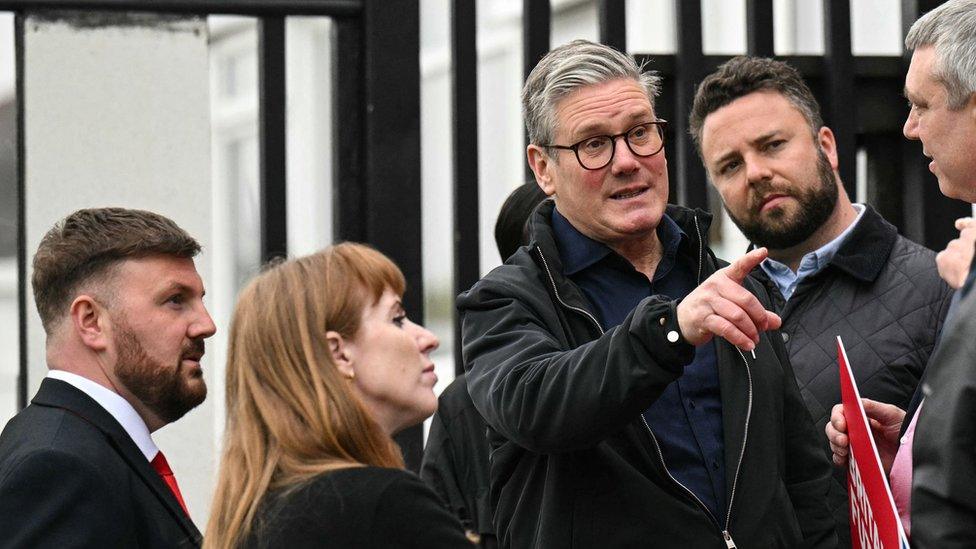
Sir Keir Starmer travelled to Blackpool to toast his party's by-election success
Greens and Lib Dems make gains
It was a good election for smaller parties, with the Lib Dems and Greens winning council seats in areas they will be targeting at the general election.
The Liberal Democrats have made gains of 104 councillors so far and won Tunbridge Wells and Dorset.
It failed to take control of West Oxfordshire and Wokingham, both target areas.
The Greens have gained over 70 seats, including 10 on Bristol City Council, an area it is targeting at the general election, where they fell narrowly short of an overall majority.
The party has increased its vote share in areas with a high Muslim population, as well in areas with lots of students.
Mixed bag for Reform UK
Nigel Farage and Richard Tice's party won 16.9% of the vote in Blackpool South, coming third, only 117 votes behind the Tory candidate.
This was its best performance yet in a Westminster by-election, although not as good as the 28.9% it won in Peterborough in 2019 in its previous guise as the Brexit Party.
The share of the vote suggests that while about two-thirds of the Tory vote may have gone to Labour, about a third went to Reform - something that may worry Tory election strategists.
However, the party has only won two council seats so far, both in Havant, near Portsmouth.
Assessing the party's performance here is more difficult, however, as it is only standing just over 326 candidates in 316 wards, a very low number.
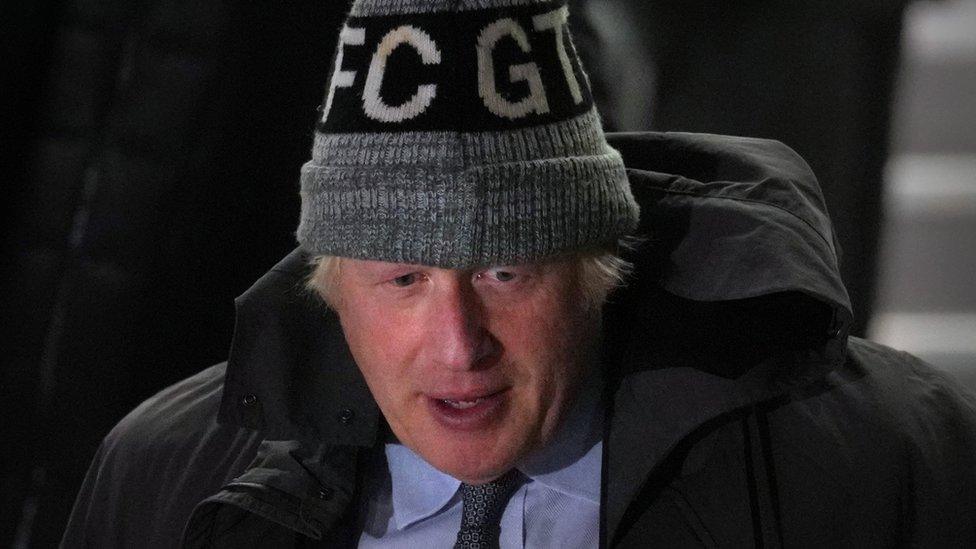
Voter ID wrangles
Boris Johnson hit the headlines after being turned away from his local polling station after forgetting his voter ID.
The former prime minister, whose government introduced the rules, was later able to vote after returning with the right documentation.
Writing for the Daily Mail, Mr Johnson said he attempted to use a copy of Prospect magazine as a form of identification, but was turned away by local electorate officials.
The government also confirmed it intends to add Veteran Cards to the list of acceptable ID, after some former service personnel were turned away at polling stations.
Meanwhile, Conservative MP Tom Hunt said his dyspraxia caused him to lose his passport and he had to arrange an emergency proxy vote.
Related topics
- Published3 May 2024
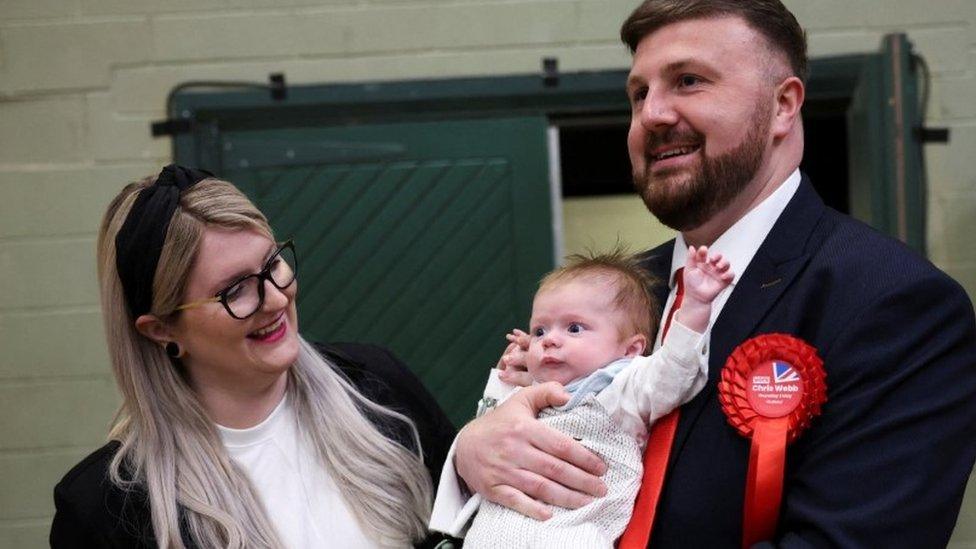
- Published3 May 2024
